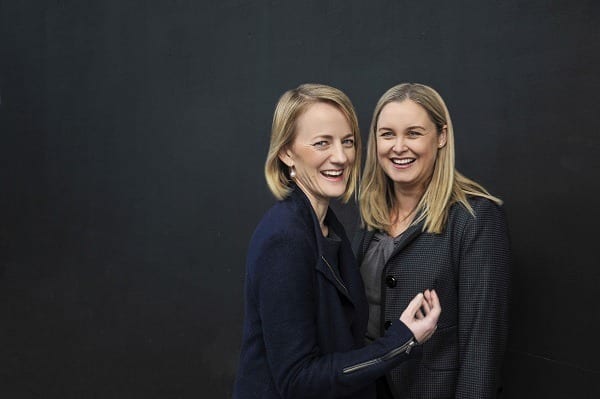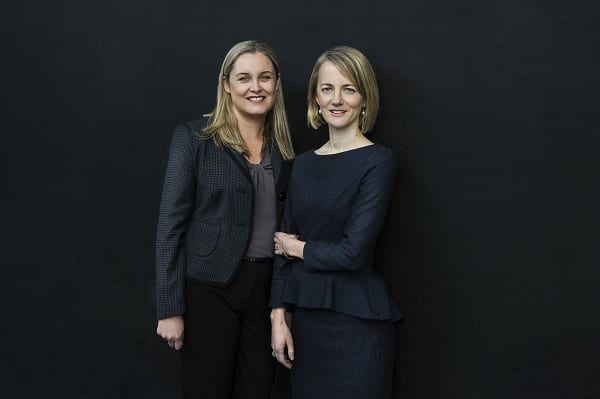Job sharing is not something usually associated with roles on high profile public issues, but that’s exactly what’s happened with a landmark inquiry into Digital Platforms such as Google and Facebook.
The ACCC appointed Morag Bond and Kate Reader as joint general managers of the project in a job sharing role to inquire into the impact of these global giants on media and advertising markets.
While many government agencies benefit from job-sharing arrangements, appointing such a partnership at the senior executive service level for a long term position on a high profile inquiry was a first for the ACCC.
“The ACCC has a policy of ‘if not, why not’ in relation to flexible working, and job-shares are a great way for people to work flexibly together,” said Chief Operating Officer Rayne de Gruchy.
Ms de Gruchy said the pairing of Kate and Morag, known colloquially as ‘Korag’, had also shown her the deeper benefits of job-sharing. “We are getting two excellent minds for the price of one. And seeing the collaboration of ideas and approach that working together and providing support to each other can bring to their effectiveness takes it to a new level.”
As every job-share partnership involves different roles and people, how any one arrangement operates is very much a matter for the two individuals and the particular role. In this case Kate and Morag insisted the role be shared equally—they did not want this to be ‘Morag’s job’ that Kate shared or vice versa. The pair decided on equal responsibility for the team management, direction and oversight of the analysis, budget, stakeholder engagement and delivery of the preliminary and final report.
Kate said, “Our experience is that job-sharing can provide a degree of freedom; however it also requires a lot of planning, close cooperation and mutual respect. It is not advisable to ‘wing it’ when starting a job-share partnership.”
Taking the time to discuss how a job-share will operate and planning for peak or stressful times is key. Kate and Morag say potential job-share partners should consider a number of practical points, including:
- the implications of the agreed workday split for the work performed (for example, who will attend regular meetings? who is signing off regular reports?)
- which meetings are critical for both job-share partners to attend and how these will be managed
- how the job-share partners will manage after-hours or weekend work or additional tasks that may arise
- day-to-day practical tasks such as mail forwards and telephone forwards
- when and how each partner will be contactable on non-workdays (Kate and Morag each agreed that they would not directly respond to emails on non-workdays to avoid mixed messages but would be contactable to each other)
- what the job-share partners expect to be consulted on during non-workdays
- plans for leave or holidays
- the escalation process if the job-share partners disagree on a substantial issue
- how the job-share will end (particularly important for open-ended job-shares).
Job-share partnerships that manage teams have to be both consistent and adaptable. Teams are also entitled to expect that a decision made by one job-share partner will be supported by both. It should also be recognised that job-share partners are not clones of each other. Respect for the decisions made by the other job-share partner and mutual responsibility are therefore essential.
Adaptability is also important, because what job-share partners envisage when an arrangement begins may not be how it works out in practice. For the Digital Platforms Inquiry Kate and Morag and their team were required to pivot to new issues quickly, as the external environment dramatically changed during the course of the inquiry including the Cambridge Analytica scandal, the tech giants appeared before the US Congress, court action in Europe and media outlets stepping up their campaigns.
Kate and Morag’s direct supervisor, ACCC Executive General Manager Scott Gregson, says the experience is an “eye-opener” about how well job-sharing can function on multiple levels.
“With the pair working three days a week each, I get the benefit of that start-of-week energy twice as each come back from their days out of office with fresh thinking that has been ticking over while doing other things,” Mr Gregson said.
“Importantly, the teams that work to Kate and Morag also speak highly of their experience. They too benefit from exposure to different styles and experiences, not to mention the great role modelling in flexibility and progressive approaches to working. Win-win and even more win.”



